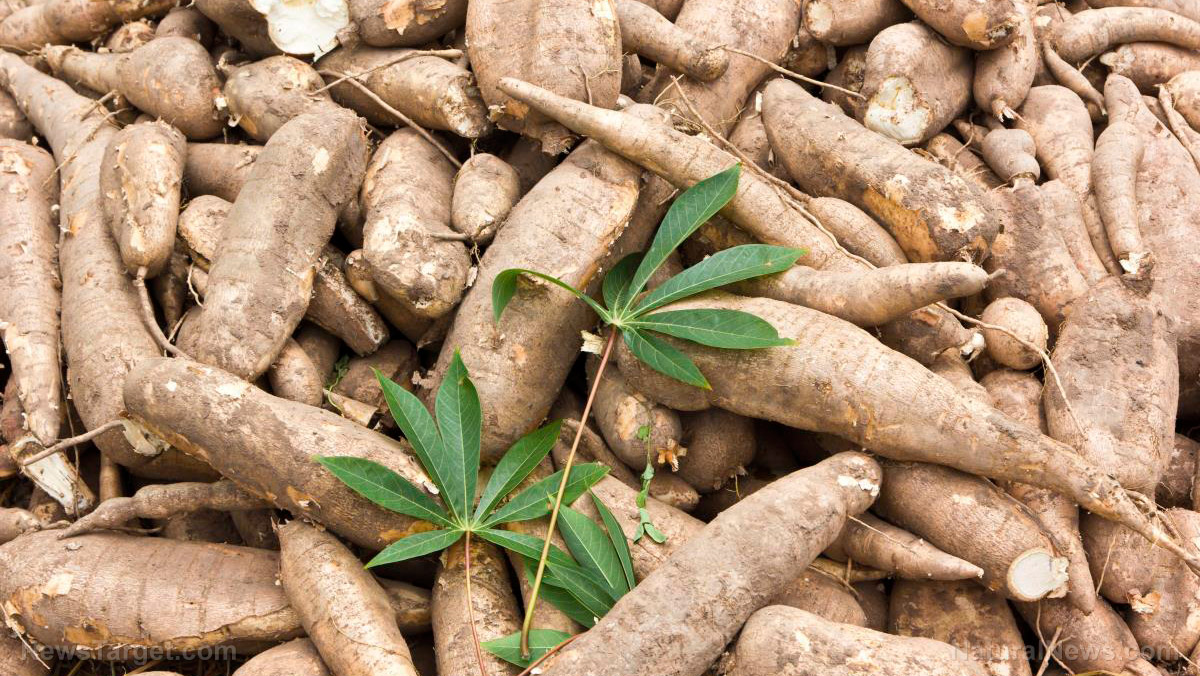
Advertisement
Cassava (Manihot esculenta) is an edible root crop well known as a staple food because of its carbohydrate content. You will find cassava being grown in other countries alongside other crops. Many cuisines make use of the root as part of their meals.
Cassava is eaten in various ways around the world. You can find cassava being fried, mashed, boiled and even fermented before being eaten. You can also find it being turned into flour to bake bread. Cassava also contains many vitamins that can bring you a step closer toward optimal health? It contains vitamin C, vitamin B1 (thiamine), vitamin B2 (riboflavin) and vitamin B3 (niacin).
But did you know that the lowly cassava is also good for the soil?
According to paper published in Conservation Science and Practice in November of 2020, cassava’s can potentially help restore degraded land due to its resiliency. Oftentimes called the “Rambo root” because of how resilient it is, cassava can tolerate rising temperatures and can even thrive in poor soil. The paper’s authors noted that replanting degraded land with cassava could serve as a viable first step to reviving it.
The paper’s authors also noted that cassava can prevent the soil from compacting and protect it from erosion. Planting cassava alongside fast-growing crops such as legumes – also known for their ability to naturally process nitrogen – can also help bring depleted soil back to life. The biomass from these catch crops would eventually turn into mulch that would also shield the soil from being swept away by water. They also contribute to retaining much-needed nutrients and restoring soil health.
“Cassava has garnered a reputation for [restoring depleted] nutrients in the soil,” stated author Ma. Eliza J. Villarino. “Evidence suggests it could potentially revive degraded land and make it productive anew, generating numerous positive socio-economic and environmental impacts.”
“Cassava has the potential to restore degraded land, which in turn could lower greenhouse gas emissions, alleviate hunger and reduce poverty,” she added noting that the solution “could generate livelihoods and market opportunities.”
Co-author and cassava expert Luis Augusto Becerra meanwhile said: “Cassava can offer a solution to put back degraded land while helping nature and farmers. [It can pull] carbon out of the atmosphere and [lock] it into the soil.” He added that cassava can help small-holder farmers move to a better forest-based agricultural model. These will enable high-value fruit trees to be grown – translating to bigger incomes, Becerra said.
Cassava could also help clean up heavy metals in soil
Beyond it’s ability to restore degraded land, cassava may also be able to help clean up potentially toxic heavy metals from contaminated soil.
“Studies in Brazil have shown that cassava has high heavy metal content when planted in heavy-metal contaminated areas,” said co-author and soils expert Mayesse Da Silva. “We therefore suspect cassava might absorb heavy metals from the soil and mitigate heavy metal contamination.” But she clarified that cassava’s ability to soak up heavy metals in the soil is only a hypothesis that calls for “further research.”
Cassava’s metal-absorbing ability may be of help to cacao producers in Colombia. The paper’s authors suspect that cassava could absorb cadmium – a heavy metal found in the soil. High levels of this element prevent cacao from Colombia and other Latin American countries from entering foreign markets. According to the authors, planting cassava and cacao together could be helpful to farmers as the root crop addresses the cadmium levels in cacao.
At the same time, the cassava could help the farmers earn some money while the cacao is not yet ready for harvest. Cassava takes only six months to be ready harvesting while it takes up to three years before cocoa becomes ready to be harvested from the cacao trees. But the market needs to be studied to see if there would be a demand for cassava and its by-products such as start.
Visit HomeGardeningNews.com to learn more about plants that can benefit soil health.
Sources:
Advertisements







